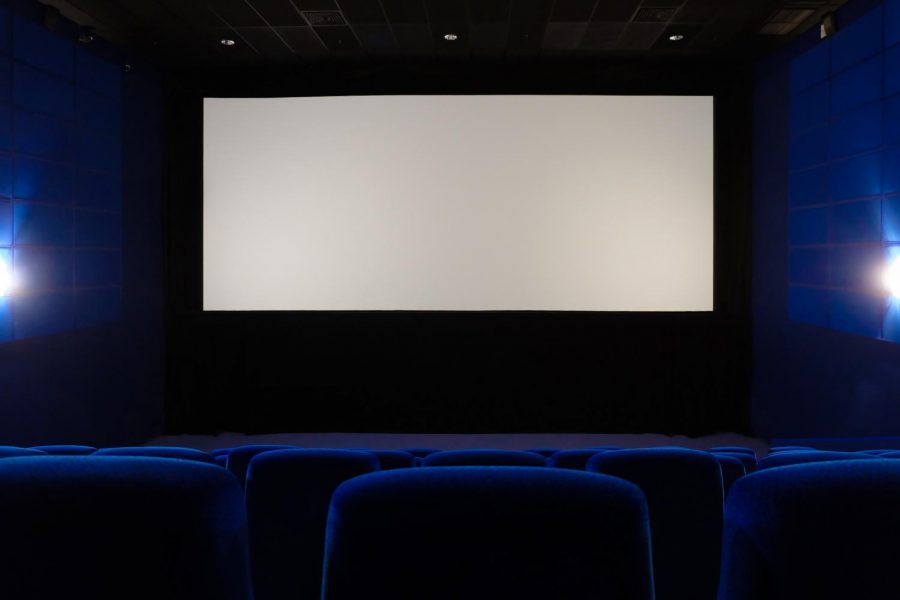Film review: ‘House of Gucci’
Getty Images
Empty cinema hall. View of empty white cinema screen from the upper rows of the auditorium.
December 21, 2021
“House of Gucci,” released Nov. 24 in theaters, is based on a true story and inspired by Sara Gay Forden’s novel “The House of Gucci: A Sensational Story of Murder, Madness, Glamour, and Greed,” published in 2001.
The crime and drama film is based on real-life events, focusing on the relationship between Maurizio Gucci and Patrizia Reggiani, as well as their drama-filled relationship and marriage.
In 1995, Maurizio Gucci was murdered by a hitman who is believed to have been hired by Patrizia, his ex-wife.
“House of Gucci” begins in Italy in 1978 before the two had met, giving the audience some background on Patrizia, who works at her father’s trucking business.
Patrizia and Maurizio meet at a party and soon after become romantically involved with each other, eventually making Maurizio pick between Patrizia and his family before they get married.
The film stars Lady Gaga as Patrizia Reggiani, Adam Driver as Maurizio Gucci, Al Pacino as Aldo Gucci and Jared Leto as Paolo Gucci.
The acting between Gaga and Driver is captivating, and the chemistry between the two appears to be effortless. The two fully embody their characters and keep the audience in suspense.
Cinematographer Dariusz Wolski is known for his work on the “Pirates of the Caribbean” film series, “The Martian,” “Crimson Tide” and “Dark City.” The cinematography complements the storyline, characters and events perfectly with breathtaking shots of Italy.
It comes as no surprise why Wolski was picked, as he and director Ridley Scott have collaborated numerous times in the past. Scott is known for “Thelma & Louise,” “The Last Duel” and “Gladiator.”
If you don’t think you know composer Harry Gregson-Williams, you probably will be familiar with his work. Gregson-Williams was the composer for all four “Shrek” series films, “The Chronicles of Narnia: The Lion, the Witch and the Wardrobe,” “The Last Duel” and “The Meg.”
Gregson-Williams’ musical score for “House of Gucci” exceeds expectations and is one of the main highlights of the film.
The only part that doesn’t do the film and storyline justice is near the end, where Maurizio gets into an argument with members of the company Investcorp. Soon after the scene, the film quickly cuts to another scene without clueing the audience in on what happened and what decisions were made in-between the gap.
The film is on the longer side with a running time of two hours and 38 minutes, making it perfect for viewing with friends, family, a partner and some popcorn.
For those unfamiliar with the events that inspired the novel and then “House of Gucci,” the suspenseful twists and turns will have you on the edge of your seat, wondering what will happen next. Click here to find showtimes at a theater near you.







